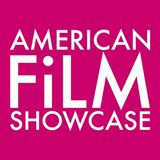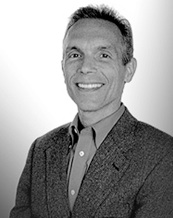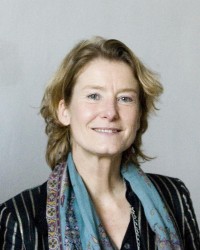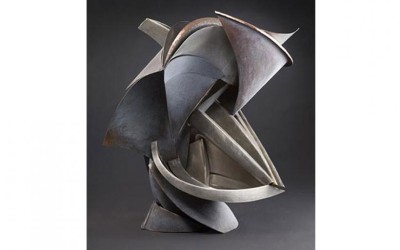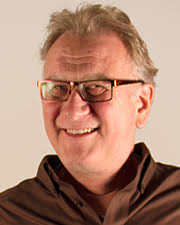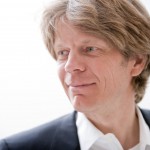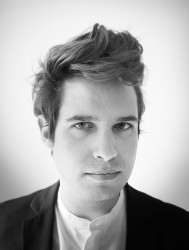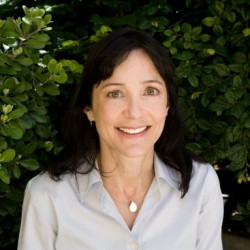Open Lectures
03.03.2016
Open Lecture: Dr. Michael Renov, University of Southern California: “Semiotics of Documentary and U.S. Documentary Film History”
Dr. Michael Renov from the University of Southern California will hold a public lecture titled “Semiotics of Documentary and U.S. Documentary Film History” at the Estonian Academy of Arts, Estonia pst 7, rm 426 on February 3, 2016 at 4 pm. The lecture will be in English and everyone is welcome.
Why the documentary matters? Michael Renov, professor of Critical Studies and Vice Dean for Academic Affairs from University of Southern California, author of several books about the documentary film and documentary film curator for many festivals, will be talking about the social significance of the documentary film. Dr. Renov will discuss the crucial functions served by the documentary film — preservation, persuasion, analysis and expression — with additional attention given to ethical concerns. Dr. Renov, an experienced jury member for film festivals such as Sundance, Silverdocs and many others, will also be talking about the U.S. documentary films and U.S. documentary films history.
The lecture is made possible and available thanks to the Embassy of the United States of America in Estonia.
Open Lecture: Dr. Michael Renov, University of Southern California: “Semiotics of Documentary and U.S. Documentary Film History”
Thursday 03 March, 2016
Dr. Michael Renov from the University of Southern California will hold a public lecture titled “Semiotics of Documentary and U.S. Documentary Film History” at the Estonian Academy of Arts, Estonia pst 7, rm 426 on February 3, 2016 at 4 pm. The lecture will be in English and everyone is welcome.
Why the documentary matters? Michael Renov, professor of Critical Studies and Vice Dean for Academic Affairs from University of Southern California, author of several books about the documentary film and documentary film curator for many festivals, will be talking about the social significance of the documentary film. Dr. Renov will discuss the crucial functions served by the documentary film — preservation, persuasion, analysis and expression — with additional attention given to ethical concerns. Dr. Renov, an experienced jury member for film festivals such as Sundance, Silverdocs and many others, will also be talking about the U.S. documentary films and U.S. documentary films history.
The lecture is made possible and available thanks to the Embassy of the United States of America in Estonia.
03.02.2016
DESIGN OPEN LECTURE SERIES:JEROEN CARELSE / LECTURER IN AALTO UNIVERSITY, CARELSE OÜ DESIGNER AND ANALYSIST
3.02 Jeroen Carelse / lecturer in Aalto University, Carelse OÜ designer and analysist.
Mixing research+art+business. Extrasensory Perception & Design, Imagination, Intuition and creativityAuthenticity and creativity. What does it mean to be authentic and how does one become authentic? Does authenticity result in creativity? Are there differences in art and design that comes from the place of authenticity?
DESIGN OPEN LECTURE SERIES:JEROEN CARELSE / LECTURER IN AALTO UNIVERSITY, CARELSE OÜ DESIGNER AND ANALYSIST
Wednesday 03 February, 2016
3.02 Jeroen Carelse / lecturer in Aalto University, Carelse OÜ designer and analysist.
Mixing research+art+business. Extrasensory Perception & Design, Imagination, Intuition and creativityAuthenticity and creativity. What does it mean to be authentic and how does one become authentic? Does authenticity result in creativity? Are there differences in art and design that comes from the place of authenticity?
24.03.2016
Open Day March 24, 2016
The Open Day at the Estonian Academy of Arts will take place on March 24, 2016 from 10am-6pm. If you are a foreign student and need guidance in English, please contact admissions@artun.ee to register for a tour. The programme is posted in Estonian here: https://www.artun.ee/x/avatuduksed/kava/
Open Day March 24, 2016
Thursday 24 March, 2016
The Open Day at the Estonian Academy of Arts will take place on March 24, 2016 from 10am-6pm. If you are a foreign student and need guidance in English, please contact admissions@artun.ee to register for a tour. The programme is posted in Estonian here: https://www.artun.ee/x/avatuduksed/kava/
27.01.2016 — 29.01.2016
OPEN LECTURE: Joanna Figiel public lecture on artistic work
Joanna Figiel public lecture on artistic work
———————————————————————————-
On Wensday, January 27th 6PM we are pleased to host Joanna Figiel (London City University) who will hold an open lecture on artistic work. The lecture will take place at the main hall of Estonian Academy of Sciences, Kohtu 6.
„This short lecture will attempt to overview, and engage with, the vast array of issues faced – currently and historically – by those trying to make a living, pursue a meaningful career or simply survive in the sphere of artistic, cultural and creative work.
What does it mean to work as an artist? What does it mean to work as a female artist?
What is the class composition of artistic and cultural work? What are the lived realities of production for creative workers and different forms of subjectivation occurring in forms of creative labour? How does artistic labour function as a form of authentic self-expression?
To ask and engage with the above, as well as other related questions, I will firstly look at the general history of art workers movements, ideologies and politics, and further turn to a number of recent projects exploring and engaging with these issues.
To name a few, I will:
-bring together existing accounts addressing the politics of cultural and creative work and the findings of the “Metropolitan Factory” research project, developed in collaboration with S.Shukaitis.
-discuss the work of Citizens Forum for Contemporary Arts in Warsaw, Poland and the subsequent publication of the “Black Book of Work in the Arts” of which I was co-editor. (“Czarna Ksiega Polskich Artystow”)
-summarize a portion of findings from the recently completed, 2-year long, “Art Factory” research project of the Free/Slow University of Warsaw examining the distribution of capital(s) in Polish art-world, with the specific focus on issues of female workers and artists
-look back at the ongoing practices and shared tools developed by the Carrotworkers Collective and the Precarious Workers Brigade in London, UK.
Finally, I will give some examples of how we can take responsibility – but whose responsibility is it? – to step out for art workers’ rights and working conditions in the current political climate of neoliberalism and generalized precarity.“
Joanna Figiel is a doctoral candidate at the Centre for Culture Policy Management, City University, London. Her research focuses on the changing compositions of labour, precarity, and policy in the creative and cultural sectors. She completed her MA at the Centre for Cultural Studies, Goldsmiths. Joanna is a member of the editorial collective of the journal ephemera: theory and politics in organization, organizes with groups including the Citizen’s Forum for Contemporary Art in Poland and PWB in the UK, and collaborates with Free/Slow University of Warsaw and the ArtLeaks collective. She recently completed work on a special issue of a journal dedicated to workers’ inquiry and a collective research project exploring the practicalities of making a living as a creative worker in the city.
——————————————————————————————
A workshop about the relationships of art and work.
——————————————————————————————
Joanna Figiel and Airi Triisberg will also be holding a workshop at the Institute of Art History on January 29th, 10.15 AM (Suur-Kloostri 11, room 103). For participation please email to Rebeka Põldsam (rebeka@cca.ee)
In this workshop, we will discuss how the problems of precarious labour are manifested and contested in the context of contemporary art practice. By examining examples of labour organising in the art field, we will discuss how precarity is addressed and conceptualised by art and cultural workers.
The workshop will focus on two themes in particular. In the first part, we will discuss how art workers relate to the modes of subjectivation that are typical to neoliberal economy. In this context, we will ask what is the role of art education in shaping these subjectivities and how could the imperatives of competition and individuality be contested. How can we manage our individual expectations and ambitions vs the reality of the art world/art economy, individuality vs collectivity ?
In the second part of the workshop we will look at concrete practices and strategies used by art workers initiatives that are currently active. What kind of tools do art workers use when seeking to change precarious working conditions in their local contexts? Which strategies are successful and where are their limits?
Recommended reading
Maarin Mürk, Maria-Kristiina Soomre, Airi Triisberg, Kõigepealt saame rikkaks, siis hakkame õiglaseks?
Precarious Workers Brigade, Training for Exploitation? Towards an alternative curriculum
Training For Exploitation? Towards an alternative curriculum
Joanna Figiel, On the Citizen Forum for Contemporary Arts
https://artsleaks.files.wordpress.com/2012/09/joanna_figiel_artleaks_gazette_2.pdf
Airi Triisberg, Art Workers Movement in Tallinn: the Politics of Disidentification
www.art-workers.org
Art Factory Polish survey/ report excerpt http://issuu.com/beczmiana/docs/the_art_factory
Further readings:
Airi Triisberg’s -Estonian text about the recent organising in Estonia
PWB Alternative Curriculum ? https://carrotworkers.wordpress.com/2012/05/02/training-for-exploitation-towards-an-alternative-curriculum/
Counter-internship guide ? https://carrotworkers.wordpress.com/counter-internship-guide/
Citizen forum https://artsleaks.files.wordpress.com/2012/09/joanna_figiel_artleaks_gazette_2.pdf
WAGE?
Bulletpoints to think about:
thinking of ones artistic practice as labor, are artist workers?
artist income
content of their art academies’ curriculum
expectations vs reality of the art world/art economy
precarity
competition vs individuality
internalisig/personalising systemic issues
collectivity? do artists and collectives work? what are the limits of collectivity? issues/limits of unionising
burnout/work-life balance
Possible steps:
– working through examples of practices and initiatives. can we examine them critically?
– creating a problem list / offering ideas for a toolbox – creating a toolbox together?
– mapping precarity
OPEN LECTURE: Joanna Figiel public lecture on artistic work
Wednesday 27 January, 2016 — Friday 29 January, 2016
Joanna Figiel public lecture on artistic work
———————————————————————————-
On Wensday, January 27th 6PM we are pleased to host Joanna Figiel (London City University) who will hold an open lecture on artistic work. The lecture will take place at the main hall of Estonian Academy of Sciences, Kohtu 6.
„This short lecture will attempt to overview, and engage with, the vast array of issues faced – currently and historically – by those trying to make a living, pursue a meaningful career or simply survive in the sphere of artistic, cultural and creative work.
What does it mean to work as an artist? What does it mean to work as a female artist?
What is the class composition of artistic and cultural work? What are the lived realities of production for creative workers and different forms of subjectivation occurring in forms of creative labour? How does artistic labour function as a form of authentic self-expression?
To ask and engage with the above, as well as other related questions, I will firstly look at the general history of art workers movements, ideologies and politics, and further turn to a number of recent projects exploring and engaging with these issues.
To name a few, I will:
-bring together existing accounts addressing the politics of cultural and creative work and the findings of the “Metropolitan Factory” research project, developed in collaboration with S.Shukaitis.
-discuss the work of Citizens Forum for Contemporary Arts in Warsaw, Poland and the subsequent publication of the “Black Book of Work in the Arts” of which I was co-editor. (“Czarna Ksiega Polskich Artystow”)
-summarize a portion of findings from the recently completed, 2-year long, “Art Factory” research project of the Free/Slow University of Warsaw examining the distribution of capital(s) in Polish art-world, with the specific focus on issues of female workers and artists
-look back at the ongoing practices and shared tools developed by the Carrotworkers Collective and the Precarious Workers Brigade in London, UK.
Finally, I will give some examples of how we can take responsibility – but whose responsibility is it? – to step out for art workers’ rights and working conditions in the current political climate of neoliberalism and generalized precarity.“
Joanna Figiel is a doctoral candidate at the Centre for Culture Policy Management, City University, London. Her research focuses on the changing compositions of labour, precarity, and policy in the creative and cultural sectors. She completed her MA at the Centre for Cultural Studies, Goldsmiths. Joanna is a member of the editorial collective of the journal ephemera: theory and politics in organization, organizes with groups including the Citizen’s Forum for Contemporary Art in Poland and PWB in the UK, and collaborates with Free/Slow University of Warsaw and the ArtLeaks collective. She recently completed work on a special issue of a journal dedicated to workers’ inquiry and a collective research project exploring the practicalities of making a living as a creative worker in the city.
——————————————————————————————
A workshop about the relationships of art and work.
——————————————————————————————
Joanna Figiel and Airi Triisberg will also be holding a workshop at the Institute of Art History on January 29th, 10.15 AM (Suur-Kloostri 11, room 103). For participation please email to Rebeka Põldsam (rebeka@cca.ee)
In this workshop, we will discuss how the problems of precarious labour are manifested and contested in the context of contemporary art practice. By examining examples of labour organising in the art field, we will discuss how precarity is addressed and conceptualised by art and cultural workers.
The workshop will focus on two themes in particular. In the first part, we will discuss how art workers relate to the modes of subjectivation that are typical to neoliberal economy. In this context, we will ask what is the role of art education in shaping these subjectivities and how could the imperatives of competition and individuality be contested. How can we manage our individual expectations and ambitions vs the reality of the art world/art economy, individuality vs collectivity ?
In the second part of the workshop we will look at concrete practices and strategies used by art workers initiatives that are currently active. What kind of tools do art workers use when seeking to change precarious working conditions in their local contexts? Which strategies are successful and where are their limits?
Recommended reading
Maarin Mürk, Maria-Kristiina Soomre, Airi Triisberg, Kõigepealt saame rikkaks, siis hakkame õiglaseks?
Precarious Workers Brigade, Training for Exploitation? Towards an alternative curriculum
Training For Exploitation? Towards an alternative curriculum
Joanna Figiel, On the Citizen Forum for Contemporary Arts
https://artsleaks.files.wordpress.com/2012/09/joanna_figiel_artleaks_gazette_2.pdf
Airi Triisberg, Art Workers Movement in Tallinn: the Politics of Disidentification
www.art-workers.org
Art Factory Polish survey/ report excerpt http://issuu.com/beczmiana/docs/the_art_factory
Further readings:
Airi Triisberg’s -Estonian text about the recent organising in Estonia
PWB Alternative Curriculum ? https://carrotworkers.wordpress.com/2012/05/02/training-for-exploitation-towards-an-alternative-curriculum/
Counter-internship guide ? https://carrotworkers.wordpress.com/counter-internship-guide/
Citizen forum https://artsleaks.files.wordpress.com/2012/09/joanna_figiel_artleaks_gazette_2.pdf
WAGE?
Bulletpoints to think about:
thinking of ones artistic practice as labor, are artist workers?
artist income
content of their art academies’ curriculum
expectations vs reality of the art world/art economy
precarity
competition vs individuality
internalisig/personalising systemic issues
collectivity? do artists and collectives work? what are the limits of collectivity? issues/limits of unionising
burnout/work-life balance
Possible steps:
– working through examples of practices and initiatives. can we examine them critically?
– creating a problem list / offering ideas for a toolbox – creating a toolbox together?
– mapping precarity
24.03.2016
Open Day March 24, 2016
The Estonian Academy of Arts will hold an Open Day for all interested prospective students and others on March 24th, 2016. All lectures are open for visitors as well as there will be exhibits, information hours in departments and other activities. All are welcome! More information will be available soon.
Open Day March 24, 2016
Thursday 24 March, 2016
The Estonian Academy of Arts will hold an Open Day for all interested prospective students and others on March 24th, 2016. All lectures are open for visitors as well as there will be exhibits, information hours in departments and other activities. All are welcome! More information will be available soon.
17.12.2015
Beatrice von Bismarck open lecture
On Thursday, December 17th 6PM we are pleased to host curator and professor of Academy of Visual Arts Leipzig Beatrice von Bismarck who will hold an open lecture „Valorisation Machines or The Exhibition as (Re-)Staging: “When Attitudes Become Form – Bern 1969/ Venice 2013”, Venice Biennial 2013“. The lecture will take place at the main hall of Estonian Academy of Sciences, Kohtu 6.
Exhibitions are in general performative. They bring their exhibits on stage by making them public. Furthermore they involve them in a process of meaning production through embedding them into new constellations. Over the course of processes of shifts and transpositions, additions and commentaries they create different relations between the exhibits and other objects on show as well as display devices, sites and spaces, people and discourses. Exhibitions are thus always temporally defined and this through the temporary structure of their exhibits as much as through their own rhythms, processes and duration.
With the exhibition “When Attitudes Become Form” (Bern, 1969) process and ephemerality have been inscribed not only into the history of art but also into the rather younger history of exhibitions. While a number of other curatorial initiatives around the late 1960s and early 1970s offered similarly oriented contributions to the discourse, the Swiss show and its curator Harald Szeemann acquired a particularly outstanding, almost legendary reputation. The re-staging of this show in 2013 in Venice at the Prada Foundation under the title of “When Attitudes Become Form -Bern 1969/ Venice 2013” implied a de-contextualisation and a resulting shift of meaning not only in aesthetic terms. Hand in hand with the alterations of the temporal and material conditions of the exhibits went a number of re-valorisations and capitalizations, which affected the artistic works, but also the participating artists, the curators and the exhibition itself. The Venice exhibition can thus be treated as a paradigm not only with regards to the theatrical nature of exhibiting but also to the meaning and value production of its performative capacities.
Beatrice von Bismarck (Leipzig/ Berlin), professor at the Academy of Visual Arts Leipzig for Art History, Visual Culture and Cultures of the Curatorial. 1989 – 1993 Städel Museum, Frankfurt/Main curator 20th Century art. 1993 – 1999 Lüneburg University, co-founder and -director of the project-space „Kunstraum der Universität Lüneburg“. 2000 co-founder of the project-space „/D/O/C/K-Projektbereich“. 2009 initiator of the MA-program “Cultures of the Curatorial“. Research areas: The curatorial; effects of neo-liberalism and globalization on the cultural field; postmodern concepts of the „artist“.
Currently on research leave for a book on “The Curatorial” financed by the “Opus magnum”-program of the VWStiftung.
Publications include: – Games Fights Collaborations. Art and Cultural Studies in the 90s, Ostfildern-Ruit 1996. (ed. with Diethelm Stoller, Ulf Wuggenig); – Interarchive. Archival Practices and Sites in the Contemporary Art Field, Cologne 2002. (ed. with Hans-Peter Feldmann, Hans Ulrich Obrist, Diethelm Stoller, Ulf Wuggenig); – Grenzbespielungen. Visuelle Politik in der Übergangszone (Performing the Border. Visual Politics in Zones of Transgression), (ed.), Cologne 2005; – Globalisierung/Hierarchisierung. Kulturelle Dominanzen in Kunst und Kunstgeschichte (Globalization/ Hierarchization. Cultural Dominances in Art and Art History), Marburg 2005 (ed. with Irene Below); – beyond education. Kunst, Ausbildung, Arbeit und Ökonomie, (beyond education. Art, Education, Work and Economy), Frankfurt a. M. 2005 (ed. with Alexander Koch); – Nach Bourdieu: Visualität, Kunst, Politik (After Bourdieu. Visuality, Art, Politics), Vienna 2008 (ed. with Therese Kaufmann, Ulf Wuggenig); – Auftritt als Künstler (Performance as Artist), Cologne 2010; – Cultures of the Curatorial (ed. With Jörn Schaffaf and Thomas Weski), Berlin 2012; – Timing – On the Temporal Dimension of Exhibiting (ed. with Rike Frank, Benjamin Meyer-Krahmer, Jörn Schafaff, and Thomas Weski), Berlin 2014; – Hospitality – Hosting Relations in Exhibitions, (ed. with Benjamin Meyer-Krahmer), Berlin (about to come out in January 2016).
The public lecture will be preceded by a reading group of prof von Bismarck’s earlier texts, to be taking place on Wednesday, December 9th at 4PM at the Centre for Contemporary Art Estonia, please register rebeka@cca.ee.
Beatrice von Bismarck will also be holding a seminar at the Institute of Art History on December 18th, 10 AM, room 104. For participation please email ingrid.ruudi@artun.ee
Beatrice von Bismarck open lecture
Thursday 17 December, 2015
On Thursday, December 17th 6PM we are pleased to host curator and professor of Academy of Visual Arts Leipzig Beatrice von Bismarck who will hold an open lecture „Valorisation Machines or The Exhibition as (Re-)Staging: “When Attitudes Become Form – Bern 1969/ Venice 2013”, Venice Biennial 2013“. The lecture will take place at the main hall of Estonian Academy of Sciences, Kohtu 6.
Exhibitions are in general performative. They bring their exhibits on stage by making them public. Furthermore they involve them in a process of meaning production through embedding them into new constellations. Over the course of processes of shifts and transpositions, additions and commentaries they create different relations between the exhibits and other objects on show as well as display devices, sites and spaces, people and discourses. Exhibitions are thus always temporally defined and this through the temporary structure of their exhibits as much as through their own rhythms, processes and duration.
With the exhibition “When Attitudes Become Form” (Bern, 1969) process and ephemerality have been inscribed not only into the history of art but also into the rather younger history of exhibitions. While a number of other curatorial initiatives around the late 1960s and early 1970s offered similarly oriented contributions to the discourse, the Swiss show and its curator Harald Szeemann acquired a particularly outstanding, almost legendary reputation. The re-staging of this show in 2013 in Venice at the Prada Foundation under the title of “When Attitudes Become Form -Bern 1969/ Venice 2013” implied a de-contextualisation and a resulting shift of meaning not only in aesthetic terms. Hand in hand with the alterations of the temporal and material conditions of the exhibits went a number of re-valorisations and capitalizations, which affected the artistic works, but also the participating artists, the curators and the exhibition itself. The Venice exhibition can thus be treated as a paradigm not only with regards to the theatrical nature of exhibiting but also to the meaning and value production of its performative capacities.
Beatrice von Bismarck (Leipzig/ Berlin), professor at the Academy of Visual Arts Leipzig for Art History, Visual Culture and Cultures of the Curatorial. 1989 – 1993 Städel Museum, Frankfurt/Main curator 20th Century art. 1993 – 1999 Lüneburg University, co-founder and -director of the project-space „Kunstraum der Universität Lüneburg“. 2000 co-founder of the project-space „/D/O/C/K-Projektbereich“. 2009 initiator of the MA-program “Cultures of the Curatorial“. Research areas: The curatorial; effects of neo-liberalism and globalization on the cultural field; postmodern concepts of the „artist“.
Currently on research leave for a book on “The Curatorial” financed by the “Opus magnum”-program of the VWStiftung.
Publications include: – Games Fights Collaborations. Art and Cultural Studies in the 90s, Ostfildern-Ruit 1996. (ed. with Diethelm Stoller, Ulf Wuggenig); – Interarchive. Archival Practices and Sites in the Contemporary Art Field, Cologne 2002. (ed. with Hans-Peter Feldmann, Hans Ulrich Obrist, Diethelm Stoller, Ulf Wuggenig); – Grenzbespielungen. Visuelle Politik in der Übergangszone (Performing the Border. Visual Politics in Zones of Transgression), (ed.), Cologne 2005; – Globalisierung/Hierarchisierung. Kulturelle Dominanzen in Kunst und Kunstgeschichte (Globalization/ Hierarchization. Cultural Dominances in Art and Art History), Marburg 2005 (ed. with Irene Below); – beyond education. Kunst, Ausbildung, Arbeit und Ökonomie, (beyond education. Art, Education, Work and Economy), Frankfurt a. M. 2005 (ed. with Alexander Koch); – Nach Bourdieu: Visualität, Kunst, Politik (After Bourdieu. Visuality, Art, Politics), Vienna 2008 (ed. with Therese Kaufmann, Ulf Wuggenig); – Auftritt als Künstler (Performance as Artist), Cologne 2010; – Cultures of the Curatorial (ed. With Jörn Schaffaf and Thomas Weski), Berlin 2012; – Timing – On the Temporal Dimension of Exhibiting (ed. with Rike Frank, Benjamin Meyer-Krahmer, Jörn Schafaff, and Thomas Weski), Berlin 2014; – Hospitality – Hosting Relations in Exhibitions, (ed. with Benjamin Meyer-Krahmer), Berlin (about to come out in January 2016).
The public lecture will be preceded by a reading group of prof von Bismarck’s earlier texts, to be taking place on Wednesday, December 9th at 4PM at the Centre for Contemporary Art Estonia, please register rebeka@cca.ee.
Beatrice von Bismarck will also be holding a seminar at the Institute of Art History on December 18th, 10 AM, room 104. For participation please email ingrid.ruudi@artun.ee
16.11.2015
Jewellery and Blacksmithing Open Lecture: Jon Robert Havener Nov 16th
Kansase University metal and jewellwery professor Jon Robert Havener will give an open lecture about his works on Monday, November 16, 2015 at 6 pm.
The lecture will be held in English at the Estonian Academy of Arts, room 221 (Estonia pst 7, II floor). All who are interested, are welcome!
Jon Havener studied silver and goldsmithing at the Cleveland Art Institute in Cleveland, graduating with a B.F.A. in 1973; he got an M.F.A. in metalsmithing in 1975 at the Cranbrook Art Academy Bloomfield Hills, Mich. He has taught metalsmithing and jewelry in the design department at the University of Kansas since 1977.
Jon’s work with holloware in the early 1980s has evolved into smithed and fabricated sculpture that has been exhibited nationally in galleries and competitive exhibitions.
His work is included in various public collections: The City of Lawrence, Kan.; The City of Manhattan, Kan.; Florida A & M University; The University of Nebraska, Omaha; The United States Comptroller of Currency, Kansas City, Mo.; and the Boatman’s Bank, Clayton, Mo. His work is also featured in several private collections, notably commissioned fountains, and works on the wall.
Jon has received several awards and grants for his work, including the Regional Award in Sculpture from the Mid-American Art Allliance and The National Endowment for the Arts in 1985, five research awards from the University of Kansas, and the 1998 Kansas Artists Fellowship in Sculpture.
Jon says his work has evolved from an interest in antiquity and ancient metalwork, and frequently utilizes armor forms. “I enjoy manipulating metal into complex structures that evoke a sense of drama and history,” he says. “My sculptures are often highly gestural, expressing a turbulent energy through growth-like movements.”
https://art.ku.edu/jon-havener
Jewellery and Blacksmithing Open Lecture: Jon Robert Havener Nov 16th
Monday 16 November, 2015
Kansase University metal and jewellwery professor Jon Robert Havener will give an open lecture about his works on Monday, November 16, 2015 at 6 pm.
The lecture will be held in English at the Estonian Academy of Arts, room 221 (Estonia pst 7, II floor). All who are interested, are welcome!
Jon Havener studied silver and goldsmithing at the Cleveland Art Institute in Cleveland, graduating with a B.F.A. in 1973; he got an M.F.A. in metalsmithing in 1975 at the Cranbrook Art Academy Bloomfield Hills, Mich. He has taught metalsmithing and jewelry in the design department at the University of Kansas since 1977.
Jon’s work with holloware in the early 1980s has evolved into smithed and fabricated sculpture that has been exhibited nationally in galleries and competitive exhibitions.
His work is included in various public collections: The City of Lawrence, Kan.; The City of Manhattan, Kan.; Florida A & M University; The University of Nebraska, Omaha; The United States Comptroller of Currency, Kansas City, Mo.; and the Boatman’s Bank, Clayton, Mo. His work is also featured in several private collections, notably commissioned fountains, and works on the wall.
Jon has received several awards and grants for his work, including the Regional Award in Sculpture from the Mid-American Art Allliance and The National Endowment for the Arts in 1985, five research awards from the University of Kansas, and the 1998 Kansas Artists Fellowship in Sculpture.
Jon says his work has evolved from an interest in antiquity and ancient metalwork, and frequently utilizes armor forms. “I enjoy manipulating metal into complex structures that evoke a sense of drama and history,” he says. “My sculptures are often highly gestural, expressing a turbulent energy through growth-like movements.”
https://art.ku.edu/jon-havener
03.12.2015
Open Lecture Series: Jan Knippers 3.12 at 6pm
Estonian Academy of Arts Faculty of Architecture
“Open Lecture Series”
Kanuti Gildi SAAL (Pikk 20, Tallinn)
03.12. Jan Knippers / Stuttgart
Jan Knippers is a german engineer, co-founder of engineering practice Knippers Helbig Advanced Engineering. He studied civil engineering and got a consecutive PhD at TU Berlin. Since 2000 he is chair and director of the Institute for Building Structures and Structural Design, where he is leading research in long-span structures and novel materials. In collaboration with the Institute for Computational design he is involved in the development of the ICD + ITKE research pavilions, which deal with biomorphic form and automated robotic construction. In 2001 he co-founded Knippers Helbig in Stuttgart and in 2009 in New York. He is member of numerous national and international engineering associations.
http://www.itke.uni-stuttgart.de/index.php?lang=en
http://www.knippershelbig.com/
The lecture series is supported by the Estonian Cultural Endowment.
www.avatudloengud.ee
Open Lecture Series: Jan Knippers 3.12 at 6pm
Thursday 03 December, 2015
Estonian Academy of Arts Faculty of Architecture
“Open Lecture Series”
Kanuti Gildi SAAL (Pikk 20, Tallinn)
03.12. Jan Knippers / Stuttgart
Jan Knippers is a german engineer, co-founder of engineering practice Knippers Helbig Advanced Engineering. He studied civil engineering and got a consecutive PhD at TU Berlin. Since 2000 he is chair and director of the Institute for Building Structures and Structural Design, where he is leading research in long-span structures and novel materials. In collaboration with the Institute for Computational design he is involved in the development of the ICD + ITKE research pavilions, which deal with biomorphic form and automated robotic construction. In 2001 he co-founded Knippers Helbig in Stuttgart and in 2009 in New York. He is member of numerous national and international engineering associations.
http://www.itke.uni-stuttgart.de/index.php?lang=en
http://www.knippershelbig.com/
The lecture series is supported by the Estonian Cultural Endowment.
www.avatudloengud.ee
19.11.2015
OPEN LECTURE SERIES: GILLES RETSIN 19.11. AT 18
Estonian Academy of Arts Faculty of Architecture
“Open Lecture Series”
Kanuti Gildi SAAL (Pikk 20, Tallinn)
19.11. Gilles Retsin / London
Gilles Retsin Architecture is a young award-winning London based architecture and design practice investigating new architectural models which engage with the potential of increased computational power and fabrication to generate buildings and objects with a previously unseen structure, detail and materiality. The studio is interested in the impact of computation and new fabrication methods on the core principles of architecture – the bones rather than the skin. The practice has developed numerous provocative proposals for international competitions, qualifying most recently as one of the finalists for the New National Gallery in Budapest. His work is part of the permanent collection of the Centre Pompidou in Paris, and has been exhibited internationally in museums such as the Museum of Art and Design in New York. Alongside his practice, Gilles directs a research cluster at UCL/ the Bartlett school of Architecture investigating robotic manufacturing and large-scale 3D printing methods. He is also a senior lecturer at the University of East-London.
www.retsin.org
gillesretsin.tumblr.com
The lecture series is supported by the Estonian Cultural Endowment.
www.artun.ee/avatudloengud
OPEN LECTURE SERIES: GILLES RETSIN 19.11. AT 18
Thursday 19 November, 2015
Estonian Academy of Arts Faculty of Architecture
“Open Lecture Series”
Kanuti Gildi SAAL (Pikk 20, Tallinn)
19.11. Gilles Retsin / London
Gilles Retsin Architecture is a young award-winning London based architecture and design practice investigating new architectural models which engage with the potential of increased computational power and fabrication to generate buildings and objects with a previously unseen structure, detail and materiality. The studio is interested in the impact of computation and new fabrication methods on the core principles of architecture – the bones rather than the skin. The practice has developed numerous provocative proposals for international competitions, qualifying most recently as one of the finalists for the New National Gallery in Budapest. His work is part of the permanent collection of the Centre Pompidou in Paris, and has been exhibited internationally in museums such as the Museum of Art and Design in New York. Alongside his practice, Gilles directs a research cluster at UCL/ the Bartlett school of Architecture investigating robotic manufacturing and large-scale 3D printing methods. He is also a senior lecturer at the University of East-London.
www.retsin.org
gillesretsin.tumblr.com
The lecture series is supported by the Estonian Cultural Endowment.
www.artun.ee/avatudloengud
05.11.2015
Open Lecture by LEAH EDWARDS: ARTS INNOVATION AND GREEN/ENVIRONMENTAL BUSINESS: HOW IS ART MADE, HOW IS IT FUNDED AND DELIVERED USING TECHNOLOGY
Leah Edwards
Stanford Graduate School of Business
Center for Entrepreneurial Studies
Nov 5, 2015
Estonia pst 7, rm 440A
Tallinn
Leah Edwards, the Director of the Center for Entrepreneurial Studies in the Stanford Graduate School of Business will give a talk at the Estonian Academy of Arts on November 5th at 3.30 – 5.00 pm. She will discuss the topics of Arts Innovation and Green/ Environmental Business: how is art made, how is it funded and delivered using technology. Also, how to get a business to make a difference and make changes that are good for the environment and the next generation.
The lecture is open to all interested and will take place in the Estonian Academy of Arts main building at Estonia pst 7, room 440A .
—
Leah Edwards directs the Center for Entrepreneurial Studies in the Stanford Graduate School of Business, where she manages entrepreneurial course creation, experiential learning in innovation, case writing, the creation on online learning tools, and more. She combines hands-on entrepreneurial experience with the latest studies of the innovation mindset, optimal team formation and design thinking.
Prior to returning to the GSB, Leah was a serial startup co-founder and consultant to other entrepreneurs and corporations. Most recently, Leah was co-founder of Overstat, an online analytics and conversion rate optimization platform, sold to Tealeaf Technology in December 2011 (now part of IBM). Some of her prior projects include helping to grow a software company called Building Solutions, which she then helped to sell to SolarCity. She also helped sell GreenHomeGuide to the Green Building Council and launched the first green blog network, GreenOptions, which was purchased by Virgance (now 1Bog.com).
Leah began her entrepreneurial career by launching products for companies such as Intuit, Sega of America, Oracle and Taligent (a joint venture of IBM and Apple Computing) then co-founded her first startup in the late 90’s, Post Communications, which was funded by Mohr Davidow and sold to Netcentives for $380 million.
Leah also holds a B.S. in Business Administration from the University of California, Berkeley and an MBA and Certificate of Public Management from the Stanford Graduate School of Business along with her MBA.
Leah Edwards is visiting Estonia by the invitation of the Embassy of the United States of America.
Open Lecture by LEAH EDWARDS: ARTS INNOVATION AND GREEN/ENVIRONMENTAL BUSINESS: HOW IS ART MADE, HOW IS IT FUNDED AND DELIVERED USING TECHNOLOGY
Thursday 05 November, 2015
Leah Edwards
Stanford Graduate School of Business
Center for Entrepreneurial Studies
Nov 5, 2015
Estonia pst 7, rm 440A
Tallinn
Leah Edwards, the Director of the Center for Entrepreneurial Studies in the Stanford Graduate School of Business will give a talk at the Estonian Academy of Arts on November 5th at 3.30 – 5.00 pm. She will discuss the topics of Arts Innovation and Green/ Environmental Business: how is art made, how is it funded and delivered using technology. Also, how to get a business to make a difference and make changes that are good for the environment and the next generation.
The lecture is open to all interested and will take place in the Estonian Academy of Arts main building at Estonia pst 7, room 440A .
—
Leah Edwards directs the Center for Entrepreneurial Studies in the Stanford Graduate School of Business, where she manages entrepreneurial course creation, experiential learning in innovation, case writing, the creation on online learning tools, and more. She combines hands-on entrepreneurial experience with the latest studies of the innovation mindset, optimal team formation and design thinking.
Prior to returning to the GSB, Leah was a serial startup co-founder and consultant to other entrepreneurs and corporations. Most recently, Leah was co-founder of Overstat, an online analytics and conversion rate optimization platform, sold to Tealeaf Technology in December 2011 (now part of IBM). Some of her prior projects include helping to grow a software company called Building Solutions, which she then helped to sell to SolarCity. She also helped sell GreenHomeGuide to the Green Building Council and launched the first green blog network, GreenOptions, which was purchased by Virgance (now 1Bog.com).
Leah began her entrepreneurial career by launching products for companies such as Intuit, Sega of America, Oracle and Taligent (a joint venture of IBM and Apple Computing) then co-founded her first startup in the late 90’s, Post Communications, which was funded by Mohr Davidow and sold to Netcentives for $380 million.
Leah also holds a B.S. in Business Administration from the University of California, Berkeley and an MBA and Certificate of Public Management from the Stanford Graduate School of Business along with her MBA.
Leah Edwards is visiting Estonia by the invitation of the Embassy of the United States of America.

